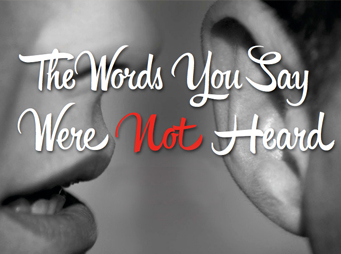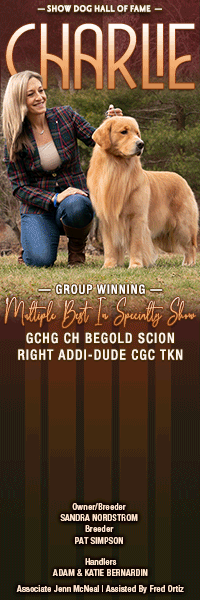The Words You Say Were Not Heard
208 – November/December, 2016
BY DEBRA VEY VODA-HAMILTON,
ESQ./MEDIATOR
 In fact, misunderstandings happen to all of us, inside and outside the dog show world. What can or should you do to address the toxic fallout? This article will help you take a step back, breathe and decide if and how you can address the mis-characterization and go forward in a positive manner.
In fact, misunderstandings happen to all of us, inside and outside the dog show world. What can or should you do to address the toxic fallout? This article will help you take a step back, breathe and decide if and how you can address the mis-characterization and go forward in a positive manner.
Consider this hypothetical situation:
A breeder sells a dog to an older couple. When registration of the dog comes up, the parties have differing memories of their agreement. Nothing was in writing. The discussions quickly deteriorate between the parties. Many difficult and hurtful conversations occur before all communication stops. The dog is registered in the breeder’s name. The dog lives with the older couple. They paid for the dog and have cared for it for over a year. They wanted to show their dog but have not been able to due to this disagreement. They decided to call a mediator to learn about the process and see if it might assist them in facilitating future conversations about the dog’s registration.
They spoke to the mediator. He explained the process and advised them only to tell him minimal facts to maintain his neutrality. A good mediator respects and supports both sides of the conflict and their story. After the initial conversation, the mediator asked the couple to introduce him to their breeder so he could have a similar conversation with the breeder. The couple did, the breeder responded and a telephone call was set up.
The mediator and breeder spoke. The mediator explained what mediation was, how it worked, the equality of process and cost to owner and breeder, its confidentiality and voluntariness. The breeder decided she did not want to pay for any assistance with this conflict conversation. After the call, the breeder wrote a friend characterizing the conversation with the mediator as asking for money and she was not paying. She felt the mediator was trying to ‘shake her down.’
If this scenario sounds familiar to you, like a mischaracterized conversation you had with someone, how might you shift this process? How can you get everyone on the same page? First, choose to call the party who seems confused or who confused you and give/ask for further explanation. Doing this shifts the negative paradigm and nips a conflict in the bud. One mistake made is that the breeder called her friend and not the mediator to get clarification. The other mistake was that the mediator did not realize he had been misunderstood. Both parties and the mediator needed clarification due to a case of ‘the words you said were not heard’.
Why might you want to do this?
Three reasons:
The misunderstanding can be cleared up quickly.
The parties do not perpetuate mis-information.
The relationship is retained.
Stop talking and listen; it does not make you less powerful. Actually, it gives you a stronger position because you are focused on what is being said. You can now ask for more clarity. Try hard to keep your preconceived notions at bay until you hear the whole story. You may be surprised that there is a lot of information you missed or misunderstood or in the alternative was missed or misunderstood.
Click here to read the complete article208 – November/December, 2016
Short URL: https://caninechronicle.com/?p=116153
Comments are closed











